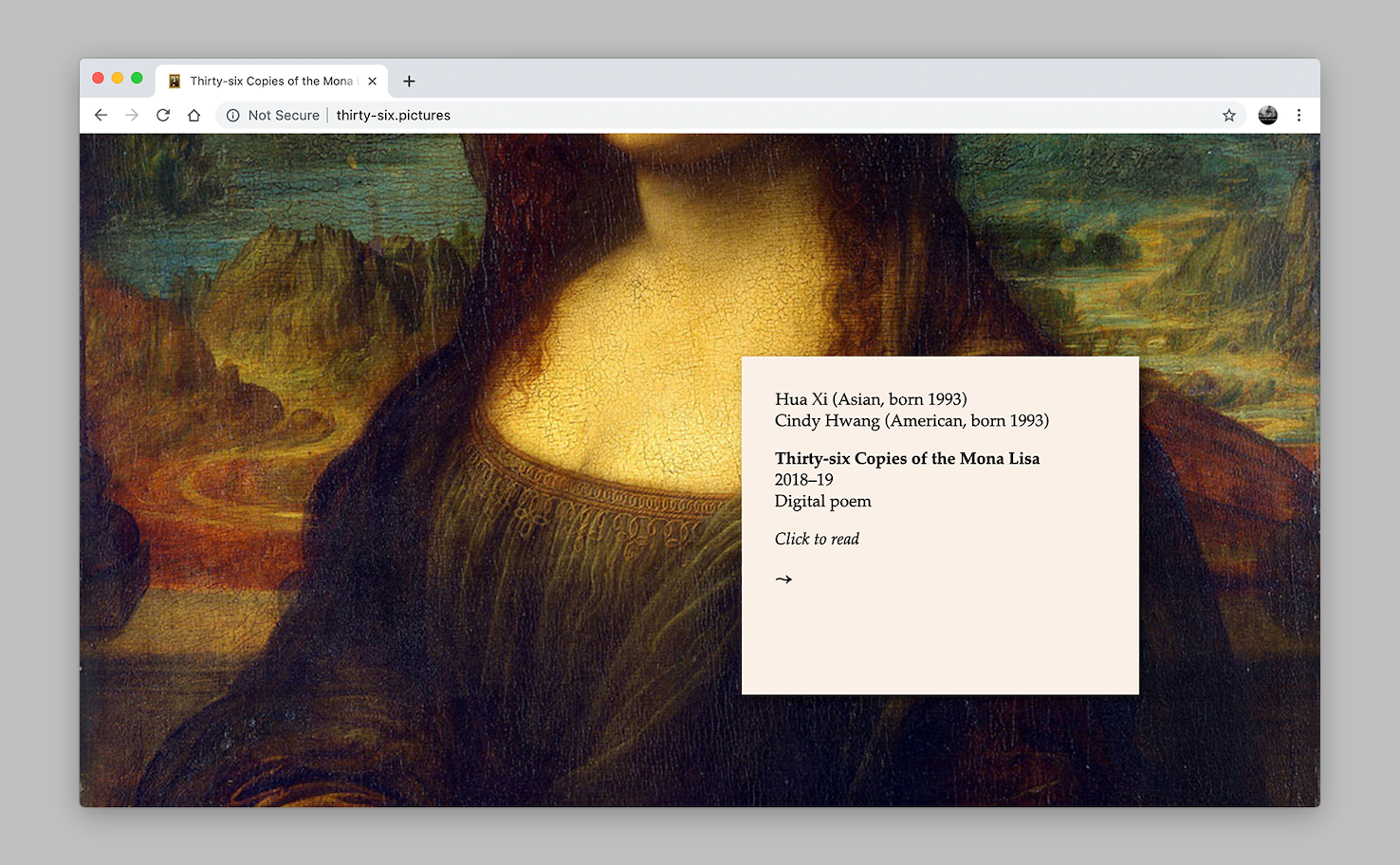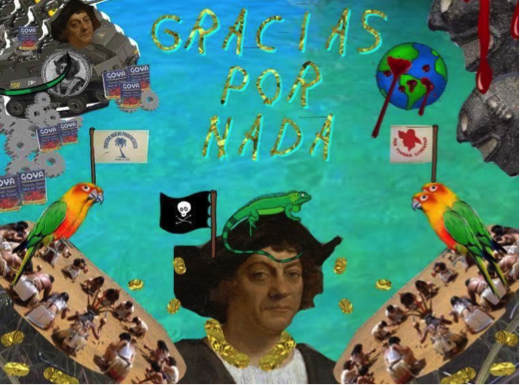Thirty-six Copies of the Mona Lisa
by Cindy Hwang and Hua Xi Thirty-six Copies of the Mona Lisa is a digital poem about oil painting reproductions, Chinese national identity, and Western colonialism. When my friend Hua Xi approached me in December 2018 with an opportunity to collaborate—turning a poem she had written into a website—the critic and curator Douglas Crimp was far from my mind. But reading his acclaimed “Pictures” essay in a seminar, and then encountering InVisible Culture’s invitation to engage with Crimp’s legacy not long after, prompted me to reconsider Thirty-six Copies through the pictorial conceits articulated in his essay, which came to define the “Pictures Generation” of artists. After all, our work consists in part of sixteen pictures, including one of the most famous in the world, and lived for a time on the website thirty-six.pictures (“.pictures” being a surprisingly affordable domain). What follows is a reflection on how those pictures contribute to one’s reading of the accompanying poem, and vice versa, drawn from Crimp’s original insights. To be clear, the pictures in Thirty-six Copies are quite unlike …


